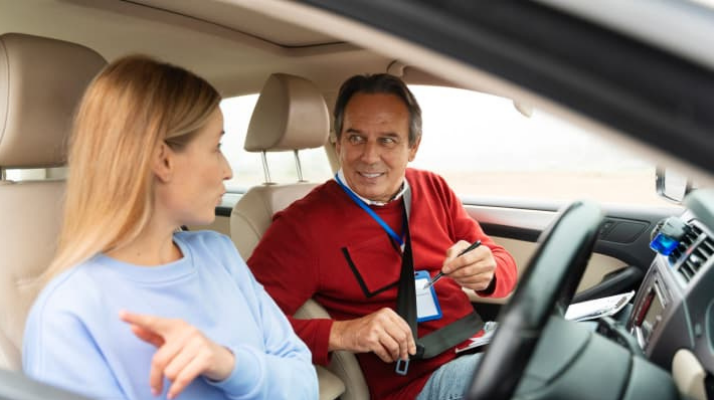Nerves and anxiety can be debilitating for many people. Learning to drive and the fear of taking your practical test can exacerbate already high nervousness and anxiety.
So, what can you do?
There is no magic cure unfortunately, as these feelings and emotions affect individuals differently. That is not to say that there are not things that you can try, to help and alleviate your stress.
Deep breathing really helped me lower my heart rate and begin to feel calm and think clearly again.
– Michael Clark
Deep breathing techniques.
Although it may sound simple, these techniques can be highly effective. Taking slow, full, deep breaths can help counteract your stress response. When we start to get very anxious, we naturally begin to breathe more rapidly. Our heart rate and blood pressure start to rise. Understanding when this happens, and learning to counteract this by taking slow, deep breaths, can help. This measured breathing can assist in calming you down, in turn helping to reduce your heart rate and blood pressure.
Speak to your instructor.
On your lessons it is always a good idea to speak to your instructor about your nerves. Although you may feel uncomfortable doing so, rest assured that instructors encounter students with nerves and anxiety regularly. It is much more common than you may imagine.
Do roundabouts induce anxiety? Are manoeuvres stressing you out? Cannot get to grips with reversing, and it is causing you to panic? Help your instructor to help you; by explaining how and why you feel the way you do. If your instructor understands your fear, then they can adapt the lessons to help you. This could mean taking you to a quieter location to practice and hone your skills or making you feel more comfortable in what you are doing, so you can build your muscle memory. Never be afraid to let your instructor know if you are struggling. Having that discussion means your instructor can tailor lessons to aid your confidence and competency.

Positivity
Of course this is easy to say, more difficult to put into practice. At times we can be our own worst enemy. It is easy to dwell on the negatives and undermine ourselves, leaving us feeling anxious and stressed. Focus on the positive on your lessons. If something does not go according to plan, try to accept that it happened and concentrate on moving forward. We all make mistakes. Be kind to yourself. Your instructor will offer feedback on what went wrong and how to fix the issue.
During your test try to keep a positive attitude. Concentrate on showing the skills you have been taught. Never assume you have failed, even if you think you may have done. If you think you have made a fault, try not to get distracted by it. Focus on what is happening at that moment and continue to drive to the best of your ability.
Sleep
A good night’s sleep prior to your lessons or test, is always advised. Emotions become enhanced when we are tired. Making sure you are well rested helps you get the most out of your lessons or being prepared for your test.
Caffeine
Know your limits. In general, having too much caffeine before your lesson or test is not a great idea. Too much can cause anxiety, jitters, headaches and stomach aches and diarrhoea. None of these symptoms are ideal when driving!
There is no easy fix when it comes to anxiety and nerves but trying some or all the above may prove helpful. Learning to drive should not fill you with fear and make you dread every lesson. See what works for you and remember to voice your concerns with your instructor. They really are there to help!




Comments are closed